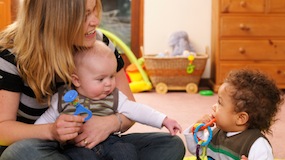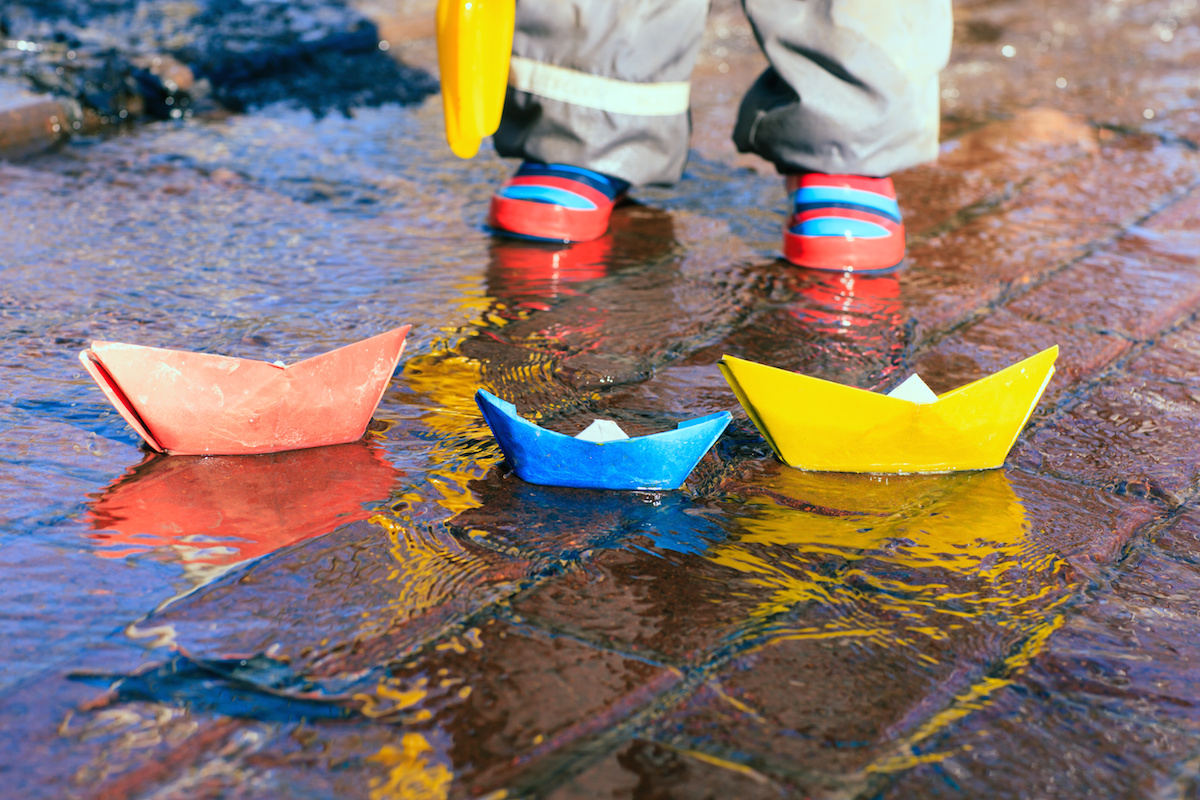Infants and toddlers are fascinating! I am constantly surprised by their behaviours, their communication attempts, their infinite curiosity, their constant learning and experimenting… but what intrigues me the most is their need for physical comfort. This innate desire to be near, to have physical contact, to seek out another being truly demonstrates Bowlby’s attachment theory and “secure base”.

Research over the last 5 or more decades has constantly demonstrated the importance of physical contact for infant growth and development including creating a feeling of security which in turn creates a positive well-being. So what are the implications for us in early childhood? What does that mean for us as educators?
With the many and various demands on educators today we often feel removed from the children. Many educators express their frustrations and concerns to me that their infants are unsettled, cry for long periods of the day and they feel they are in “survival mode” as they save infants from each other’s clutches and /or teeth!
I also hear educators concerns about their routines especially around nappy changing, feeding and sleep – where infants are on tight schedules or routines do not support quality practices and nappy changing feel like it occurs all day.
These are common concerns expressed by early childhood educators and with all the knowledge we have on best practice and the importance of attachment I argue that we need to make some significant changes to our routines and daily practices.
- Firstly we need to have conversations about infant development and attachment and create knowledge and understandings (with families) about the significant role we all play.
- we need to think about our routines… do nappies need to be changed every 2 hours? As a parent myself I changed my daughter when it was needed. I would argue that most families would support such practice. It is economically and environmentally more sustainable and less disruptive to the child and their explorations
- sleep and feeding should be intimate moments where an infant feels relaxed, they can learn social skills and enjoy comfort. We need to consider these times bot the physical environment… is it cozy? is it calm and relaxed? Am I responsive and available?
- think about where we are as educators… I have the “2 down -1 up” rule.. this means that at any one time 2 educators are on the floor available as a secure base for infants and 1 educators may be up (changing a nappy, talking to a parent, taking a call, documentation etc.). At NO time should ALL educators be “unavailable” to infants
- create a pedagogy that is shared with families that says “infants and our relationships with them are priority”
If you would like further information or support on this topic please feel free to book into my on-line PD webinar “Supporting the needs of Infants” on Thursday 9th February @ 7pm AEDT. Please email Kirsty Fantini kirsty@earlyyearstraining.com.au

Leave a Reply